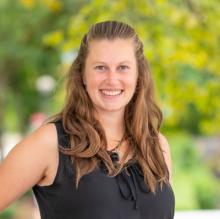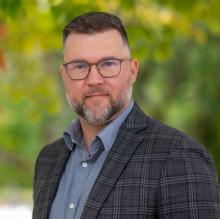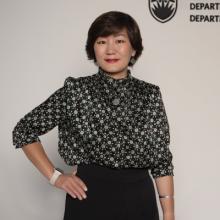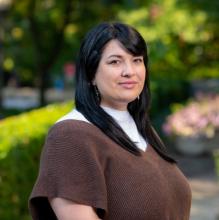Being a public scholar means producing accessible scholarship that can move between academic and non-academic communities. Being a public scholar, for me, also means creating and disseminating research according to principles of access.
Research Description
For my PSI project, I will create a podcast series about being disabled in graduate school. As Margaret Price explains, “disabled people in academic life seem to be struggling.” This struggle often goes unnoticed and is frequently erased or pushed out of the university altogether. Academic life is also becoming increasingly disabling: difficult teaching loads, limited tenure-stream positions, and ever-increasing academic expectations are impacting faculty and student mental and physical health. While there has been some research on disabled faculty, there has been very little research conducted to date on the experiences of disabled graduate students, leading some scholars to ask: Where are the disabled and ill academics? My goal then is to create a podcast series that addresses this research gap. It is my hope that the podcast series will start a conversation around the challenges disabled academics deal with inside academic institutions and, more importantly, shift the university experience for future disabled graduate students.
What does being a Public Scholar mean to you?
Being a public scholar means producing accessible scholarship that can move between academic and non-academic communities. Being a public scholar, for me, also means creating and disseminating research according to principles of access, things like publishing in open access journals, writing in plain or jargon-free language, or providing image descriptions for visual material.
In what ways do you think the PhD experience can be re-imagined with the Public Scholars Initiative?
Not only does the PSI make scholarship accessible to non-academics, but it also supports forms of scholarship that may be better suited to academics living with disability and chronic illness—providing more equitable opportunities for this population. The PSI supports non-traditional formats, such as the podcast series, that may better allow people moving through fluctuating cognitive abilities, such as brain fog or excessive fatigue, to survive in an institution that is set up for the very able. In all of the work I do, I’ve also tried to match my research to the best medium for delivery—from documentary films, nonfiction essays, podcasts, to academic writing. I’ve noticed that more professors are shifting away from traditional academic formats, such as the essay, and allowing students to create podcasts or zines to organize and circulate their ideas. I believe there are many different ways of producing valuable public-facing research.
How do you envision connecting your PhD work with broader career possibilities?
Outside of the university, I work as a grant-funded artist and filmmaker. My academic training has helped concentrate my creative ideas, and vice versa. With these diverse skill sets, I want to continue to combine my scholarship and art to produce creative research that celebrates disabled people’s lives.
How does your research engage with the larger community and social partners?
Both my dissertation and PSI project address disabled and ill communities. I’ve never been interested in producing research that doesn’t have a direct use. My dissertation research, for example, engages health professionals and patients to imagine better health policies for people with medically unexplained illnesses and contested diagnoses.
Why did you decide to pursue a graduate degree?
Between each of my degrees, I took several years off and felt that I would never return to academia. But new research ideas—ones that would only be supported by the university—would continue to come to me. Academia is one of the few places that my brain really thrives in. Pursuing a graduate degree has given me the space and resources to develop my ideas into work that I hope can make a positive impact.
Why did you choose to come to British Columbia and study at UBC?
I grew up an hour outside of Vancouver and completed my undergraduate degree at UBC. It was a wonderful experience and I am thankful to return to this university and to remain close to my family. The English faculty is also one of the few departments to have health and medicine rhetoricians, including one of the founders of Rhetoric of Health and Medicine, Dr. Judy Segal, so I just had to come back!




